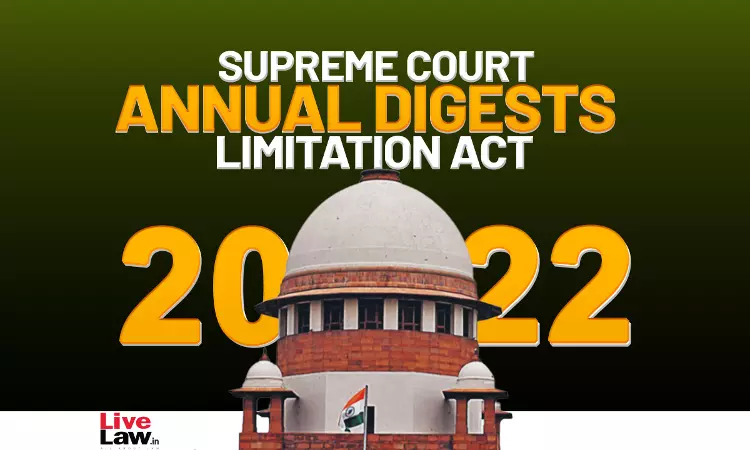Next Story
16 Jan 2023 5:27 PM IST
Limitation Limitation - Suo Motu Order Extending Limitation - Even the period of limitation which could have been extended and/or condoned by the Tribunal/Court is excluded and/or extended even up to 07.10.2021. (Para 2) Centaur Pharmaceuticals Pvt. Ltd. v. Stanford Laboratories Pvt. Ltd., 2022 LiveLaw (SC) 26 Limitation - When the proceedings are required to be initiated within...

